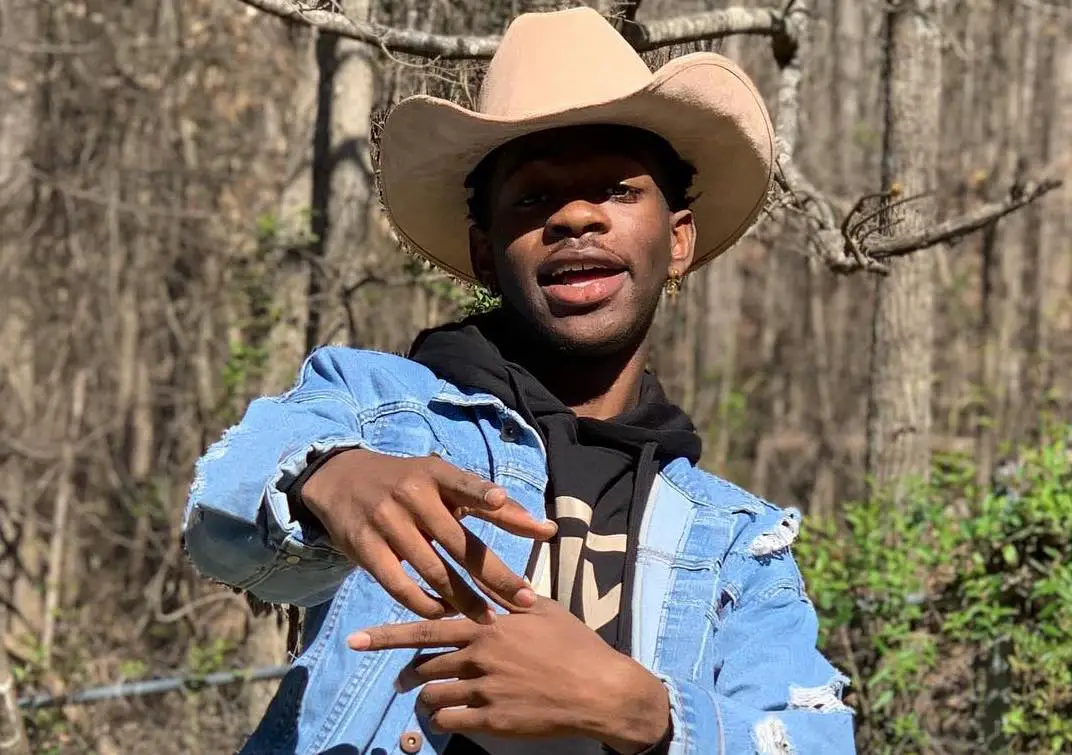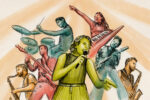Lil Nas X has the biggest song in the country and to get there, he put in some kind of effort.
Following Billboard’s controversial decision to remove his song, “Old Town Road,” from the Hot Country Chart because it didn’t closely enough resemble contemporary country music, Lil Nas X tweeted, “just because old town road has funny lines doesn’t mean it’s parody. it has a theme.” He went on, “anybody with ears can tell i put some kind of effort into that song.”
Though this choice of words would suggest a blasé approach to the music-making process, anybody with ears would be able to identify the song’s popularity as precisely engineered. “Old Town Road” has tapped a nerve and latched itself on to the trends of today firmly enough to become a smash. So, what kind of pop culture kismet had to be present to propel this oddity of a song to the height of the country’s fascination?
Lil Nas X might be first official star of the Yeehaw Agenda, the social media phenomenon that has come to describe the proliferation of images of black celebrities donning cowboy garb. Coined by writer Bri Malandro on Twitter to caption a photo of Ciara in a cowboy hat, the Yeehaw Agenda has been propelled forward through some of the world’s biggest black stars embracing the aesthetics of Western Americana.
A visual archive of the Yeehaw Agenda can be found on Instagram in an account run by Malandro and features black superstars in Western wear. Cardi B in sparkly candy colored chaps. Chris Paul sporting a cowboy hat, boots and a giant belt buckle. Beyonce in a t-shirt with an airbrushed horse design and the words “Houston Girl.”
https://www.instagram.com/p/BwDYKZdlpEt/
But, the significance of these photos goes past their sense of kitschy nostalgia. The black cowboy has been largely erased from images of America’s Old West, with the world’s collective memory instead conjuring the likes of John Wayne and Clint Eastwood to represent the era. However, the black cowboy’s presence is widely acknowledged by historians, who state that one in four cowboys was African American and were essential in the upkeep of the ranching industry.
And so, the Yeehaw Agenda is not merely an internet trend, it is a reclamation. It is a reassertion of the contributions of African Americans in the history of this country, the accounts of which are often shafted and made to disappear.
As Emma Bracy writes for ManRepeller, “[T]his reclamation is about Black people taking up the space we have always occupied but often been denied: In the occupied territories we call America, in U.S. history, in pop culture at large. It’s about taking credit when it’s due yet not given.”
The Yeehaw Agenda operates within the aesthetics of country Western to expose and lay bare its most archaic ideas. This can most clearly be seen in the arena of country music, which has long been dominated by white artists. When an artist like Lil Nas X begins scaling the country music charts with a song like “Old Town Road,” this tension becomes obvious.
As “Old Town Road” approached the peak of the country chart before being unceremoniously whisked away and sparking a debate on race in country music, there were two questions that served as the pulse for every conversation about Lil Nas X. What kind of music was he making, and why exactly was he making it?
“Old Town Road” is a “country-trap” song that contains such lines as “Ridin’ on a tractor/Lean all in my bladder” and “Cowboy hat from Gucci/Wrangler on my booty.” The lyrics are lighthearted and the instrumentation draws upon the DNA of classic country music. But for every line about backcountry dirt roads, the song sneaks in a bar or two name-dropping designers and luxury cars. Transfused in the song’s ever-present twang of banjo plucks is a propulsive trap beat. The song shamelessly smashes together the conventions of both country and hip hop.
Lil Nas X has created a country song that doesn’t take the limitations or expectations of genre too seriously. More broadly, “Old Town Road” is a country song that doesn’t take itself too seriously. Doing this successfully does, in fact, take some kind of effort. “Old Town Road” pushes up against the old system and gatekeepers that proclaim it cannot be the biggest country song in America because it simply isn’t country enough.
The Yeehaw Agenda is working to revise the world’s idea of America’s whitewashed Wild West, and alongside this, the general public’s idea of what can and cannot be considered country. The world’s perception has widened enough to allow for a song like “Old Town Road,” a song that drips in irony, moves serpentine between genres, and is undeniably and intriguingly strange, to become unbelievably popular.
Following the release of a remix of the track featuring Billy Ray Cyrus, the song reached the top of Billboard’s Hot 100 charts, making him the first artist since Cardi B to reach the peak of the chart with their first release. It also broke the record for most U.S. streams in a single week, raking in 143 million plays over all streaming services.
And, perhaps the best place to answer the question of why Lil Nas X made a song as bizarre, confounding and as endlessly fascinating as “Old Town Road” may be the very birthplace of the Yeehaw Agenda: Twitter.
Lil Nas X understood the significance of the Yeehaw Agenda, of a moment when a black artist in a country space could not only exist, but also be viable and successful. This just happened to coincide with hip-hop’s extended dominance among the world’s most popular songs. He was simply following trends, and giving the people what they wanted.
“honestly the reason i’m not dropping new music right now is because old town road is literally still growing,” he tweeted. “i’m gonna milk tf out this song til i can’t no more.”
He followed this up with a mock tracklist for an album containing seven different versions of “Old Town Road,” including the Billy Ray Cyrus remix, a Young Thug Remix, an interlude, an a capella version and a ten hour loop. “Old Town Road” is a country song that represents the future of its genre; it opens itself up to reworking and transformation, it can be stripped down or endlessly looped back on itself to turn into something completely new.
It’s a song that was forged out of the fires of the internet and born of a movement committed to reasserting the legacy of the black cowboy in Western lore and its place in American history. It’s a song that, as it turns out, was worth all the effort.
















